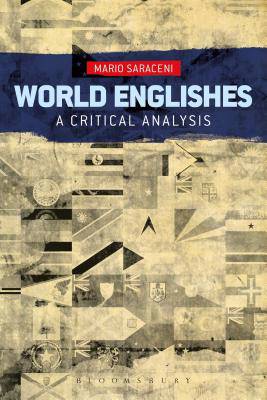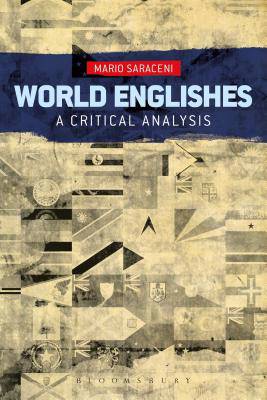
- Afhalen na 1 uur in een winkel met voorraad
- Gratis thuislevering in België vanaf € 30
- Ruim aanbod met 7 miljoen producten
- Afhalen na 1 uur in een winkel met voorraad
- Gratis thuislevering in België vanaf € 30
- Ruim aanbod met 7 miljoen producten
Zoeken
€ 373,45
+ 746 punten
Uitvoering
Omschrijving
The field of "World Englishes" takes on ever more importance in the modern era. Mario Saraceni's World Englishes: A Critical Analysis looks at the developments in the field from a critical perspective. It examines the historical, linguistic, ideological and pedagogical aspects in the study of the ever-evolving forms, roles and statuses of English around the world. The principal aim is to offer a critical overview of the field in order both to inform readers about the main issues at stake and to challenge established positions and descriptive/analytical paradigms.
The book has four sections, each of which reviews established accounts and offers alternative perspectives on those. "History+? considers representations of the evolution of 'old English' and 'new Englishes' and begins to unveil the strong link between conventional accounts and ideological motivations. "Language+? critically examines the traditional notion of 'difference' in the description of varieties of English, and discusses more recent orientations which aim to describe English as a lingua franca and the phenomenon of language hybridity. "Ideology+? examines ideological debates around the presence and status of English in the world, such as linguistic imperialism, language ownership and language ecology. The final section, "Pedagogy+? discusses pedagogical implications, such as the choice of appropriate 'models' of English and considers the possibility of teaching English as a fully de-anglicised language.
The book has four sections, each of which reviews established accounts and offers alternative perspectives on those. "History+? considers representations of the evolution of 'old English' and 'new Englishes' and begins to unveil the strong link between conventional accounts and ideological motivations. "Language+? critically examines the traditional notion of 'difference' in the description of varieties of English, and discusses more recent orientations which aim to describe English as a lingua franca and the phenomenon of language hybridity. "Ideology+? examines ideological debates around the presence and status of English in the world, such as linguistic imperialism, language ownership and language ecology. The final section, "Pedagogy+? discusses pedagogical implications, such as the choice of appropriate 'models' of English and considers the possibility of teaching English as a fully de-anglicised language.
Specificaties
Betrokkenen
- Auteur(s):
- Uitgeverij:
Inhoud
- Aantal bladzijden:
- 224
- Taal:
- Engels
Eigenschappen
- Productcode (EAN):
- 9781623563806
- Verschijningsdatum:
- 23/04/2015
- Uitvoering:
- Hardcover
- Formaat:
- Genaaid
- Afmetingen:
- 156 mm x 234 mm
- Gewicht:
- 489 g

Alleen bij Standaard Boekhandel
+ 746 punten op je klantenkaart van Standaard Boekhandel
Beoordelingen
We publiceren alleen reviews die voldoen aan de voorwaarden voor reviews. Bekijk onze voorwaarden voor reviews.








